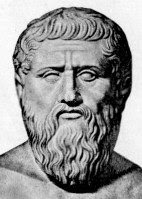I thought a list of some of the known people who lived past 150 years would be helpful in learning how to live to 150 or more.
So let us start one now with this article from the New York Times:
The New York Times, Saturday, May 6, 1933
(copy of the actual article is available for purchase online)
LI CHING-YUN DEAD; GAVE HIS AGE AS 197
"Keep Quiet heart, Sit Like a Tortoise, Sleep Like a Dog," His advice for a Long Life.
Inquiry Put Age At 256.
Reported to have buried 23 wives and had 180 descendents – sold herbs for first 100 years.
Peiping, May 5 – Li Ching-Yun, a resident of Kaihsien, in the Province of Szechwan, who contended that he was one of the world's oldest men and said he was born in 1736 – which would make him 197 years old – died today.
A Chinese dispatch from Chungking telling of Mr. Li's death said he attributed his longevity to peace of mind and that it was his belief every one could live at least a century by attaining inward calm.
Compared with estimates of Li Ching-yun's age in previous reports from China the above dispatch is conservative. In 1930 it was said Professor Wu Chung-chien, dean of the department of Education in Minkuo University, had found records showing Li was born in 1677 and that Imperial Chinese Government congratulated him on his 150th and 200th birthdays.
A correspondent of The New York Times wrote in 1928 that many of the oldest men in Li's neighborhood asserted their grandfathers knew him as boys and that he was then a grown man.
According to the generally accepted tales told in his province. Li was able to read and write as a child, and by his tenth birthday had traveled in Kansu, Shansi, Tibet, Annam, Siam and Manchuria gathering herbs. For the first hundred years he continued at this occupation. Then he switched to selling herbs gathered by others.
Wu Pei-fu, the warlord, took Li into his house to learn the secret of living to 250. Another pupil said Li told him to "keep a quiet heart, sit like a tortoise, walk sprightly like a pigeon and sleep like a dog."
According to one version of Li's married life he had buried away twenty-three wives and was living with his twenty-four, a woman of '60.' Another account, which in 1928 credited him with 180 living descendents, comprising eleven generations, recorded only fourteen marriages. This second authority said his eyesight was good; also, that the finger nails of his right hand were very long, and "long" for a Chinese might mean longer than any finger nails ever dreamed of in the United States.
One statement of The Times correspondent which probably caused skeptical readers to believe Li was born more recently that 1677, was that "many who have seen him recently declare that his facial appearance is no different from that of persons two centuries his junior."
An article from the May 15, 1933 issue of Time magazine titled:
Tortoise-Pigeon-Dog
In the province of Szechwan in China lived until last week Li Ching-yun. ... By his own story he was born in 1736, had lived 197 years. By the time he was ten years old he had traveled in Kansu, Shansi, Tibet, Annam, Siam and Manchuria gathering herbs. ... Some said he had buried 23 wives, was living with his 24th. a woman of 60, had descendants of eleven generations. The fingernails of his venerable right hand were six inches long. Yet to skeptical Western eyes he looked much like any Chinese 60-year-old. In 1930 Professor Wu Chung-chieh, dean of the department of education at Chengtu University, found records that the Imperial Chinese Government had congratulated one Li Ching-yun in 1827 on his birthday. The birthday was his 150th, making the man who died last week—if it was the same Li Ching-yun, and respectful Chinese preferred to think so—a 256-year-old.
More about Li Chang Yun from the Toronto Evening Telegram, 26 April, 1942:
Li Chang Yun, 256, died May, 1933, Szechun Province, China.
At the age of 100 he was awarded by the Chinese Government a special Honor Citation for extraordinary services to his country. This document is available in existing archives. It is reported that he gave a series of 28 lectures at the University of Sinkiang when he was over 200 years.old. He attributed his longevity to his life-long vegetarian diet and regular use of rejuvenating herbs plus "inward calm". A renowned herbalist, he used Fo-ti-tieng and ginseng daily in the form of tea. He enjoyed excellent health, outlived 23 wives, and kept his own natural teeth and hair. Those who saw him at age of 200 testified that he did not appear much older than a man in his fifties.
A researched Li Chang(Ching) Yun is featured in this 1980 book: A Seed of a Woman by Arthur C. Custance
"At the age of 100 he was awarded by the Chinese Government a special Honor Citation for extraordinary services to his country. This document is available in existing archives. It is reported that he gave a series of 28 lectures at the University of Sinkiang when he was over 200 years.old. He attributed his longevity to his life-long vegetarian diet and regular use of rejuvenating herbs plus "inward calm". A renowned herbalist, he used Fo-ti-tieng and ginseng daily in the form of tea. He enjoyed excellent health, outlived 23 wives, and kept his own natural teeth and hair. Those who saw him at age of 200 testified that he did not appear much older than a man in his fifties."
Li Ching Yun is also featured in the recent book: Qigong Teachings of a Taoist Immortal: The Eight Essential Exercises of Master Li Ching-yun by Stuart Alve Olson





![Validate my Atom 1.0 feed [Valid Atom 1.0]](valid-atom.png)